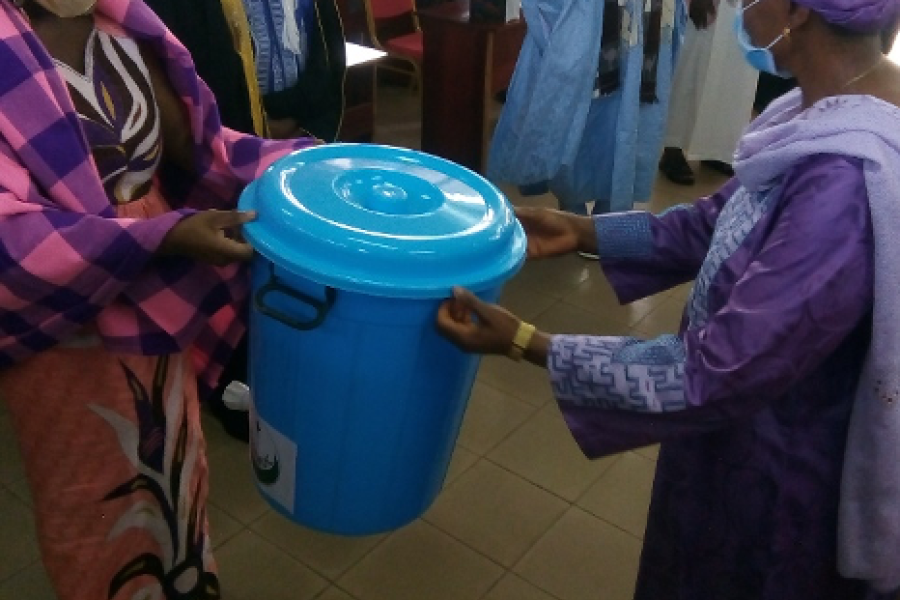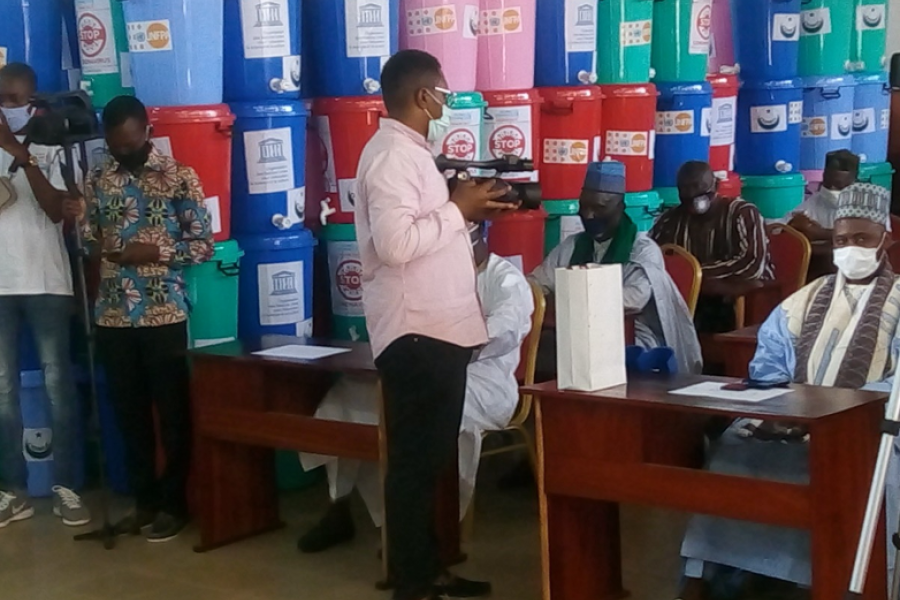Capacity building of Women's groups in Sanitary products making in Cameroon
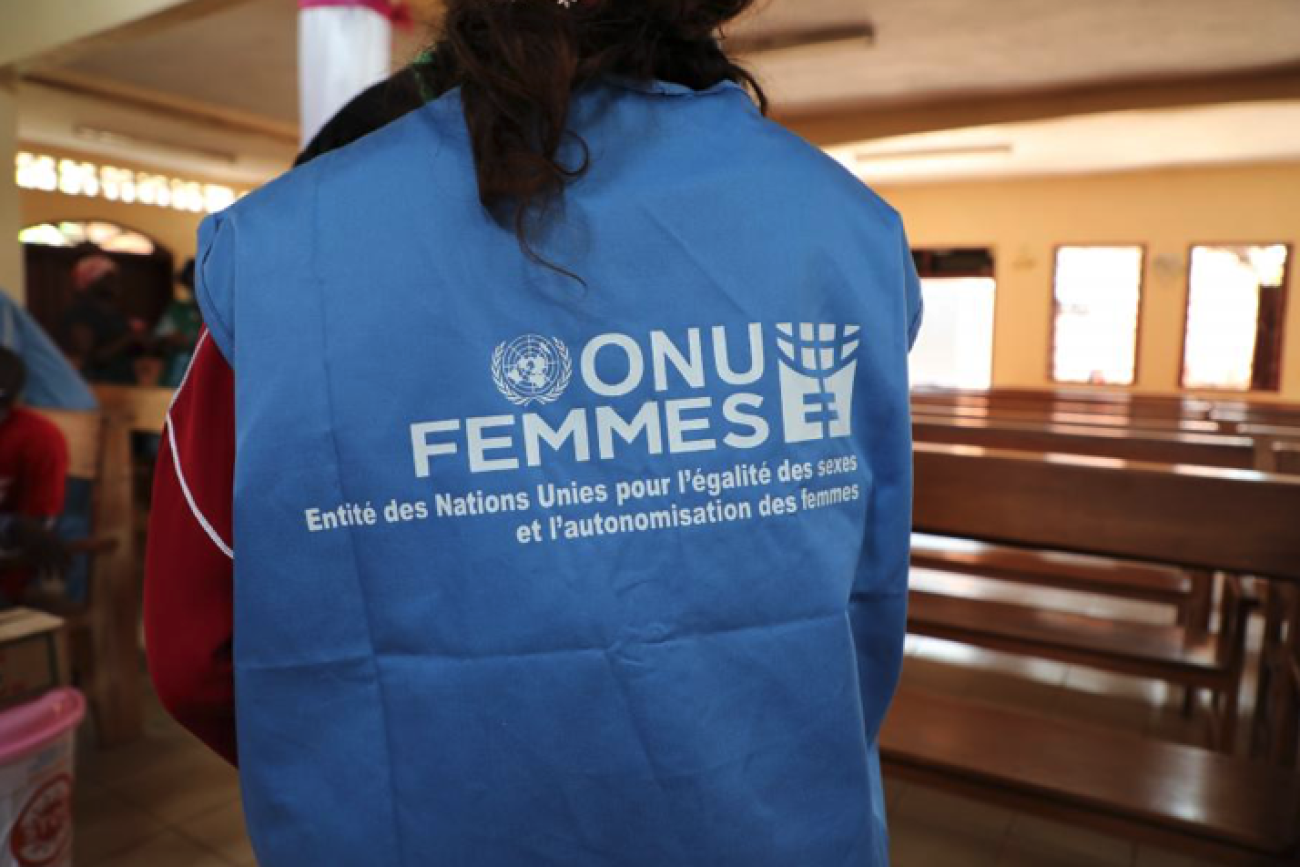
UN Women Cameroon is mobilized and committed to support the Government to strengthen women's economic resilience to COVID 19.
With COVID-19 pandemic outbreak and as governments around the world take tough measures to try to curb its spread, the social consequences of the new coronavirus are hard hit up on women. Most women work in the informal economy, which means that their income is precarious and that they benefit from health insurance that is generally inadequate or even non-existent. Knowing that they are often not eligible for bailouts, they are not helped financially. Which makes this not only a health issue for women, but the heart of gender equality situation.
UN Women Cameroon is mobilized and committed to support the Government to strengthen women's economic resilience to COVID 19. This includes prioritizing support to women at the front line of interventions, providing know-how for the manufacture of hygiene products such as masks and antiseptic soap. Our goals are to provide them with higher incomes, better access and control over resources, as well as increased security including protection from violence.
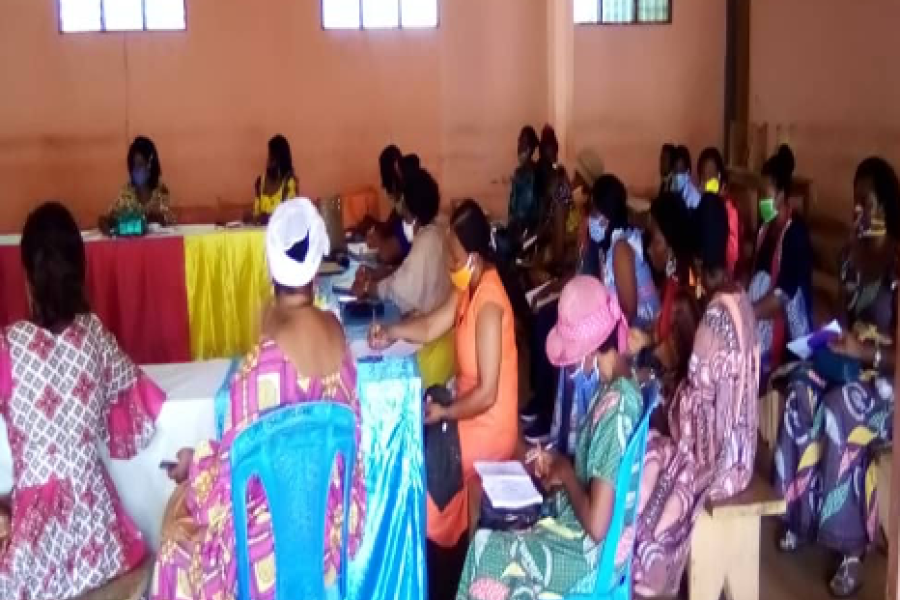
Against this backdrop, with the support of UN Women Regional Office and IFC Dakar, UN Women Cameroon organized on May 8, 2020 a training in antiseptic soap manufacturing via ZOOM platform for women's organizations in Cameroon. More than 200 women from Civil Society organizations, as well as social workers from the Ministry of Women Empowerment and the Family and the Ministry of Water and Energy were trained throughout the 10 regions of the country. UN Women Cameroon facilitated the trainings and some of them were hosted by Women Empowerment Centers belonging to the Ministry of Women Empowerment and the Family.
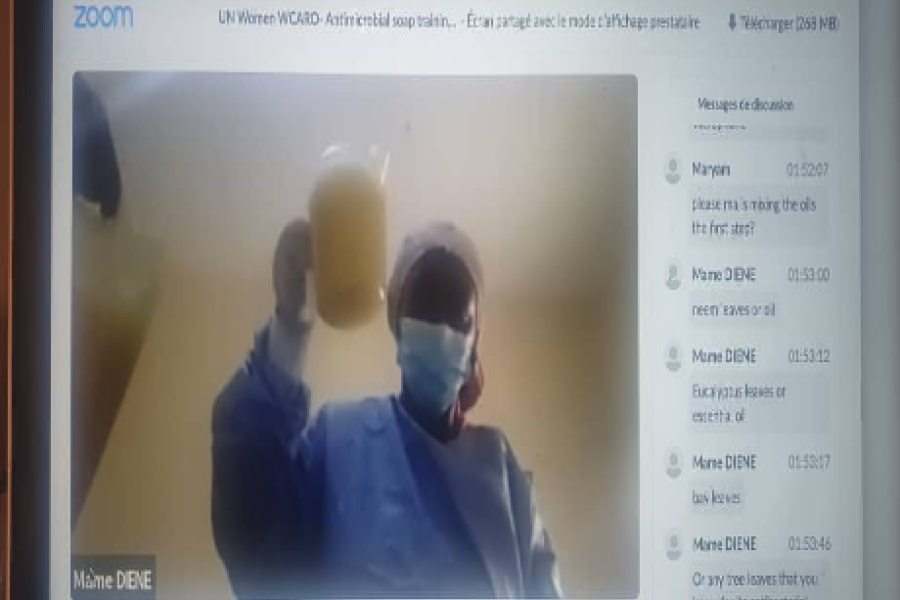
This training is part of UN Women Cameroon's Gendered Response Plan against COVID 19. The trainer, Ms Mame Diene, was recruited by the Regional Office, built productive capacities of women in the production of antiseptic soaps, revisit the formulations to focus on the manufacture of antiseptic soaps with products and plants found locally to promote the production of antiseptic soap at lower cost. She adopted a simplified approach to make it accessible to women with different backgrounds with the use of simplified measurement units and provided clear information at all production steps. She also shared a manufacturing guide in French and English with all participants. A link to the recorded training was then shared with all participants.
This income Generating activity was very much welcomed by all participants and its profitability made it attractive to several women and girls. UN Women was asked by the CSOs and by the Government to duplicate these trainings and scale it up in the sub regions.
For Mrs. YOUSSEU FLORENCE President of the Association for the Promotion of Rural Endogenous Development Actions -APADER who followed the training from Bangangté in West Cameroon "We can now make antiseptic soaps by enhancing the value of natural plants that exist in our local environment. Our organization will replicate the training to our supervised groups (COFTRAKOL, Observatory for Peace, Young leaders, agro-pastoral learners in training at our training center this autumn, women peacemakers, young girl leaders ...) and other associations (Women's Network of Bangangté, Association MBOSCUDA ...) by associating the education aspect to the pandemic.
UN Women Cameroon engage with Christians and Muslims Communities to halt COVID 19 spread
On May 9th UN Women Cameroon pursued its engagement with Religious Leaders and reached out to the Presbyterian Church of Obili in Yaoundé. According to Reverend NDJE Guy, General Secretary of Youth Conference of Protestants and Presbyterians Churches of Cameroun, UN Women is the first Development Partner to pay a visit to his Church since the outbreak of the pandemic.
20 church leaders from various congregations across the country gathered in the Church. During the ceremony, UN Women handed preventive kits to be used to fight COVID-19. The kits were composed of buckets, soap, masks, and hand sanitizers.
During the ceremony, Reverend Ndje Guy, gave UN Women representative an opportunity to provide the congregation with an overview of UN Women's mandate and work in Cameroon, with the emphasis on the importance of working with religious leaders and further protect women's rights and prevent Gender-Based Violence, that has being increasing as a result of the containment measures.
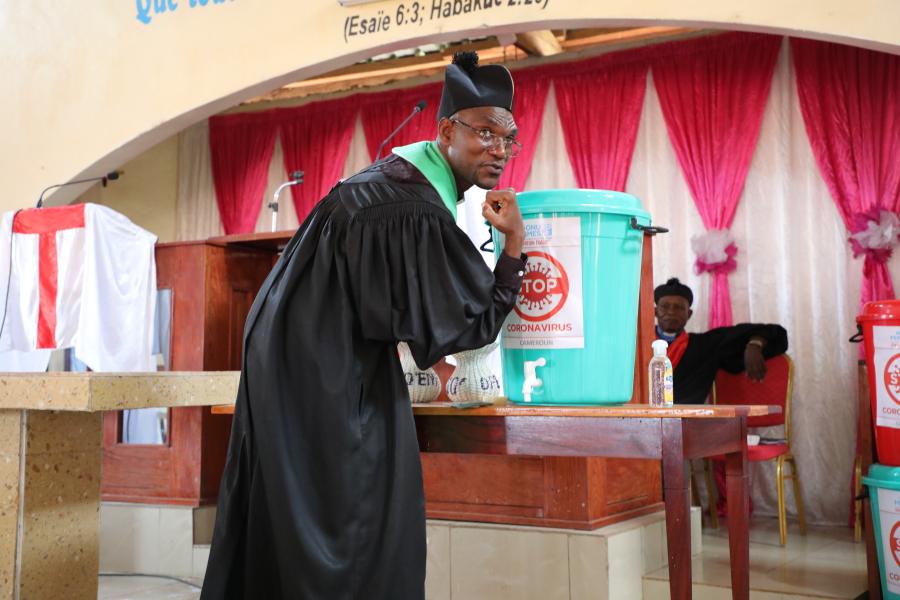
Towards the end, Reverend Ndje Guy, lauded UN Women and thanked the organization for the support. "Since the start of this pandemic, our church has not received a single donation, until UN Women contacted us and offered their support. We are truly grateful and are hoping that this is the first step in a long and fruitful relationship."
“We are praying that this pandemic will soon come to an end. In the meantime, I want to thank UN Women for this precious gift. This kit is more than welcome and will be used to protect our congregation from COVID-19. Health is a priority for all individuals, and with what we have received today, we will be able to take preventive measures against this virus," explained Sara from Ahala Israel Church.
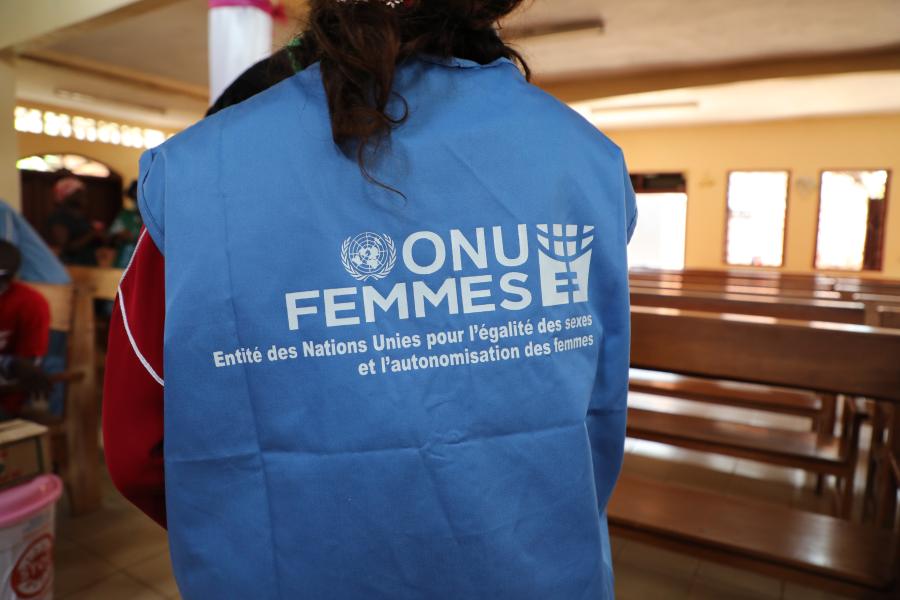
On May 16th, during a joint initiative UN Women, UNFPA and UNESCO provided support to the Council of Imams and Dignitaries of Cameroon CIDIMUC. The ceremony was held with the presence of the Minister for the Women and Family Empowerment, the CIDIMUC General Coordinator; the Head of the UN Women's Office, the UNFPA Representative and Muslim leaders -men and women- from all the regions of the Country.
Taking the floor during the ceremony, Hind Jalal, UN Women Cameroon OIC highlighted the importance for UN Women of engaging with religious leaders who are in direct contact with the population and therefore can relay awareness messages on barriers measures as well as the importance of preventing violence against women and girls that has increased since the outbreak of the pandemic.
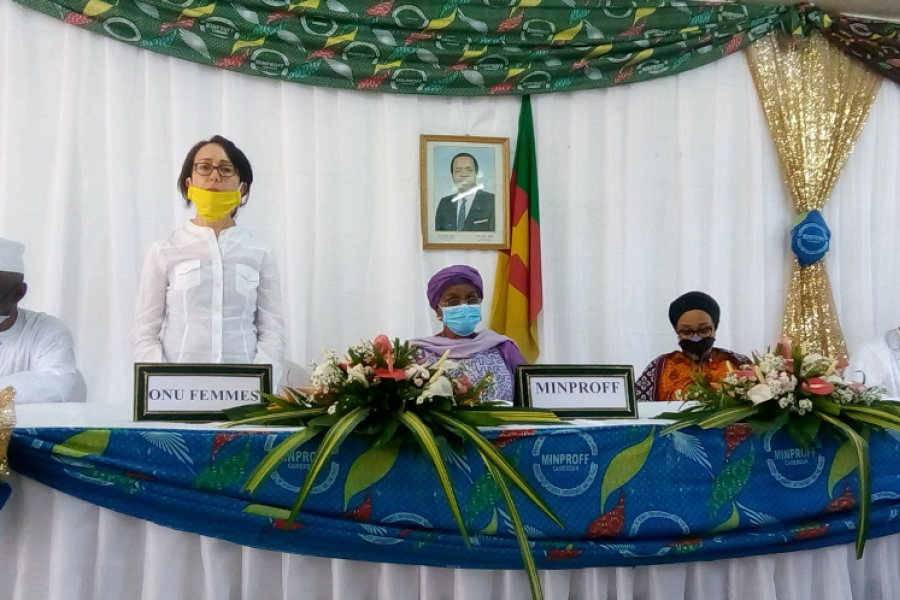
In her statement, the Minister of Women Affairs and the Family stressed the need for the community to comply with the Government barrier measures as well as to sensitize the population on the dangers of the pandemic. She commanded the action of the UN agencies and thanked the CIDIMUC for organizing this gathering with the respect of distance measures. She also congratulated the CIDIMUC for nominating women as leaders in the regions.
